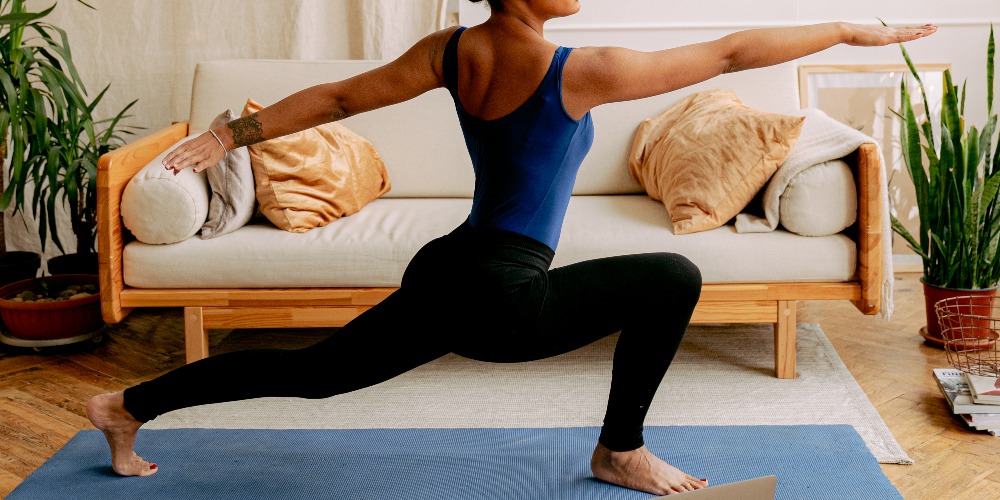Yoga is renowned for enhancing physical fitness and overall well-being; however, its therapeutic application within addiction recovery has also gained recognition in mental health. Studies have revealed that this ancient self-care practice affords profound healing benefits to those with addiction, enabling them to cope more effectively with addictive behaviours while promoting lasting wellness.
The Perry Clayman Project (PCP) recognises the power of yoga in aiding addiction recovery. PCP combines mindfulness-based practices with evidence-backed treatments to help individuals find serenity and mental equilibrium on their path to healing from addiction.
Mental Health Benefits of Yoga
Yoga has become a cornerstone of addiction treatment due to its impressive capacity for improving mental health. The practice can reduce stress and anxiety, heighten emotional well-being and self-esteem, and promote relaxation. Furthermore, regular practise helps individuals learn to manage difficult emotions or situations without returning to substance abuse as an escape from reality.
Mindful yoga can provide a valuable, non-substance resource for individuals overcoming addiction. Not only does this exercise help cultivate awareness and acceptance towards one’s thoughts and feelings in the present moment, but the practice also offers calming benefits, which lead to better sleep quality, an essential element of recovery.
Overall, with regular practise, the exercise can offer profound psychological, physical, and emotional benefits to individuals. This powerful combination can create lasting sobriety for individuals participating in treatment programmes.
Reduces Stress and Anxiety
As mentioned previously, yoga provides tangible emotional benefits, one being reduced stress levels. Physical postures, breathing techniques, and meditation practices have been shown to lower cortisol levels, the hormone associated with stress, simultaneously promoting relaxation.
Boosts Mood and Emotional Well-Being
Studies have also proven that engaging in regular yoga can do more than decrease stress and anxiety. Yoga has the potential to elevate moods and encourage emotional well-being through increased serotonin levels. In other words, making time for a few sun salutations each day could decrease depression or uneasiness.
Improves Mental Clarity and Focus
Another benefit is its ability to increase mental clarity and focus. Through mindful practise, practitioners can hone their focus and better process information, enhancing decision-making capabilities and strengthening problem-solving potential.
Yoga as a Complementary Therapy for Addiction Recovery
As addiction recovery can be challenging, yoga is an effective complementary therapy to assist individuals. Cravings and withdrawal symptoms may be more easily managed by reducing stress and anxiety. Moreover, impulse control and decision-making for people in recovery tend to improve. This bonus is especially beneficial for those who might feel overwhelmed by the negative impacts of their impulsive choices.
Yoga can also enhance overall health and physical health. This boost is vital for individuals in recovery who may have neglected their health during active addiction. Beneficial effects include increased flexibility, strength and balance, lower blood pressure, and a reduced risk for chronic diseases.
Finally, yoga offers an opportunity to unite people in recovery, creating a community and connection essential for healing. In supportive classes and workshops, individuals can share their goals and experiences with like-minded peers.
Active Healing With PCP
PCP is committed to treating addiction comprehensively, unifying traditional and alternative therapies. In particular, yoga has been distinguished as an invaluable resource for recovery efforts. The benefits are endless, and individuals who partake in the exercise will not regret enhanced physical health, mental clarity, and emotional resilience during the healing process. All of which will significantly aid them in achieving long-lasting wellness.
Regular Yoga Classes
Individuals at PCP have access to specialised yoga classes led by certified instructors who understand the challenges of this population. No prior experience is necessary. Modification options are available for those with physical limitations or injuries, making these classes accessible and ideal for everyone looking to reconnect their mind, body, and spirit.
Integrating Yoga Into Other Forms of Treatment
An integrative approach to addiction treatment may be possible by combining yoga, mindfulness and meditation. Such holistic systems facilitate a deepened understanding of self-awareness, acceptance, and inner peace. This personal growth ultimately enhances one’s overall effectiveness with recovery efforts.
Practising Yoga After Treatment
Recovering from addiction is a marathon, not a sprint. Yoga can be a powerful ally in helping individuals stay strong throughout the journey. Continuing with the practice even after treatment can create an enduring connection to recovery efforts, and individuals will have the tools to sustain their well-being in life beyond rehab.
Embracing Yoga as a Path to Wellness and Sobriety
Yoga has been proven to offer a range of mental health benefits when incorporated into addiction recovery treatment programmes. At PCP, individuals are given access to yoga during their stay and receive guidance on continuing the exercise after leaving the programme and re-entering daily life. This ongoing support will help individuals stay in complete control of their sobriety journey.
Regular classes and workshops impart a unique source of solace to those in recovery, allowing them to connect with other individuals while finding strength within themselves through yoga. This holistic form provides an opportunity for improved physicality, mental clarity, emotional understanding and spiritual growth, equipping participants with resilience while healing from addiction. Exploring new modalities may be the next step in the recovery journey, and yoga is a tried and proven method to explore.
At PCP, we understand how important it is for individuals in recovery to maintain balance in their lives, both during treatment and beyond. Through yoga, individuals in recovery can explore their inner strength while cultivating physical flexibility, mental clarity, and emotional balance. Our comprehensive approach to addiction treatment addresses addiction’s physical, emotional, and spiritual aspects, helping individuals achieve lasting recovery and improved quality of life. If you or a loved one is in addiction recovery, consider exploring the benefits of yoga and incorporating it into a comprehensive treatment plan for greater inner peace, balance, and happiness. Call us today at 08000 380 480 to learn how yoga can support your addiction recovery journey.







